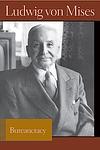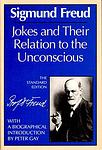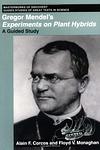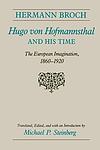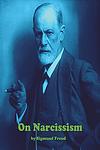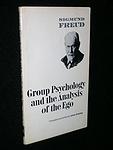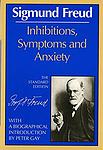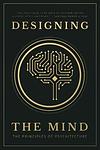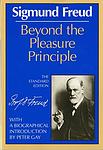The Greatest Dutch, Austrian "Nonfiction" Books of All Time
Click to learn how this list is calculated.
This list represents a comprehensive and trusted collection of the greatest books. Developed through a specialized algorithm, it brings together 305 'best of' book lists to form a definitive guide to the world's most acclaimed books. For those interested in how these books are chosen, additional details can be found on the rankings page.
Genres
Countries
Date Range
Reading Statistics
Click the button below to see how many of these books you've read!
Download
If you're interested in downloading this list as a CSV file for use in a spreadsheet application, you can easily do so by clicking the button below. Please note that to ensure a manageable file size and faster download, the CSV will include details for only the first 500 books.
Download-
26. Bureaucracy by Ludwig von Mises
"Bureaucracy" is a critical examination of the structure and function of bureaucracies in both the public and private sectors. The author argues that bureaucratic management, with its focus on rules and regulations, is not only inefficient but also stifles innovation and individual initiative. He further contends that these problems are inherent in the nature of bureaucracy itself and are not simply due to poor management or corruption. The book also explores the impact of bureaucracy on economics, politics, and society as a whole.
The 2694th Greatest Book of All Time -
27. Balzac by Stefan Zweig
This book offers a comprehensive biography of the famed French novelist and playwright, Honore de Balzac. The author delves deep into Balzac's life, exploring both his personal and professional experiences. The narrative sheds light on Balzac's tumultuous relationships, his relentless work ethic, and his extraordinary ability to depict the society and people of his time through his literature. Balzac's passion, determination, and genius are vividly presented, giving readers an intimate understanding of the man behind some of the most influential works in French literature.
The 2696th Greatest Book of All Time -
28. I and Thou by Martin Buber
This philosophical work explores the concept of relationships and the nature of dialogue. The author suggests that human life finds its meaningfulness in relationships, which he divides into two categories: "I-It" and "I-Thou". The "I-It" relationship is characterized by a detached and objective perspective, while the "I-Thou" relationship involves a deep sense of connection and mutual existence. The book argues that modern society, with its emphasis on individualism and materialism, often neglects the "I-Thou" relationship, leading to a loss of genuine human connection.
The 2779th Greatest Book of All Time -
29. The Unconscious by Sigmund Freud
This book delves into the complex workings of the human mind, exploring the concept of the unconscious. The author posits that our conscious mind is only a small fraction of who we are, and that a vast part of our thoughts, feelings, and behaviors are driven by unconscious processes. He discusses theories on dreams, slips of the tongue, and neuroses, arguing that these are all manifestations of unconscious desires and conflicts. The book provides a foundation for understanding psychoanalysis and the author's influential theories on the human psyche.
The 2845th Greatest Book of All Time -
30. Wittgenstein's Nephew by Thomas Bernhard
"Wittgenstein's Nephew" is a semi-autobiographical novel that explores the friendship between the narrator and his friend Paul, who is the nephew of the famous philosopher Ludwig Wittgenstein. The story takes place in Vienna and is set against the backdrop of the Austrian mental health system. The novel delves into themes of sanity, insanity, and the fine line that separates the two, while also offering a critique of Austrian society. It is a meditation on the nature of illness, both physical and mental, and the impact it has on personal relationships and one's perception of the world.
The 3003rd Greatest Book of All Time -
31. Tongue Set Free by Elias Canetti
"Tongue Set Free" is a captivating memoir that explores the author's personal journey of self-discovery and identity formation. Through vivid and introspective storytelling, the book delves into the complexities of Canetti's multicultural upbringing, his struggles with language and communication, and his quest for freedom and belonging. With poetic prose and profound insights, the author reflects on the power of words, the influence of cultural heritage, and the transformative nature of embracing one's true self.
The 3447th Greatest Book of All Time -
32. The Letters Of Vincent Van Gogh by Vincent van Gogh
"The Letters of Vincent van Gogh" is a compilation of correspondence that provides a deep and personal insight into the mind of one of the world's most famous and influential painters. Through these letters, primarily written to his brother Theo, the reader gains an intimate understanding of Van Gogh's thoughts on art, his emotional struggles, his aspirations, and the profound relationships he maintained throughout his turbulent life. The collection not only sheds light on his creative process but also reveals his reflections on existence, his financial difficulties, and his relentless pursuit of his artistic vision, offering a poignant look at his world from his own perspective.
The 3669th Greatest Book of All Time -
33. Homo Ludens: A Study of the Play-Element in Culture by Johan Huizinga
"Homo Ludens: A Study of the Play-Element in Culture" is a comprehensive exploration of the significance of play in human culture. The author argues that play is not just a childhood activity but a crucial component of societal development and cultural evolution. He delves into various aspects of culture such as law, war, knowledge, poetry, and philosophy, demonstrating how each has been influenced by elements of play. The author's thesis is that understanding the role of play in our culture is essential to understanding human nature itself.
The 3791st Greatest Book of All Time -
34. Study of Organic Inferiority and Its Physical Compensation: A Contribution to Clinical Medicine by Alfred Adler
This book delves into the concept of organic inferiority and how it physically manifests itself, providing significant contributions to the field of clinical medicine. It discusses the theory that certain physical and mental health issues arise from an individual's perceived inferiority and their subsequent attempts to compensate for it. The book provides a comprehensive study of this theory, exploring its implications for understanding human behavior and its potential applications in therapeutic settings.
The 4151st Greatest Book of All Time -
35. Function of the Orgasm by Wilhelm Reich
This book presents a groundbreaking exploration of human sexuality, arguing that sexual repression leads to various psychological disorders. The author, a psychoanalyst, introduces the concept of "orgastic potency", which is an individual's ability to fully surrender and discharge pent-up sexual energy during the sexual act. He contends that societal norms and moralistic attitudes towards sex often hinder this release, leading to various neuroses and other psychological issues.
The 4151st Greatest Book of All Time -
36. Experiments on Plant Hybridization by Gregor Mendel
This seminal work in the field of genetics presents the results of a series of experiments conducted on pea plants, which led to the discovery of fundamental laws of inheritance. The author meticulously cross-bred different varieties of peas and meticulously recorded the traits of their offspring, leading to the formulation of the principles of segregation and independent assortment. These principles, which underpin modern genetics, explain how traits are passed from parents to offspring and how different traits are inherited independently of each other.
The 5277th Greatest Book of All Time -
37. Infidel by Ayaan Hirsi Ali
The book is a powerful memoir of a woman who was born into a traditional Muslim family in Somalia. She recounts her experiences of growing up in a strict Islamic culture, female genital mutilation, civil war, fleeing to the Netherlands as a refugee, and her eventual rejection of her faith after witnessing its violent and oppressive nature. The book also follows her journey into politics and advocacy for women's rights and her efforts to reform Islam. It's a tale of courage, resilience, and the quest for freedom and truth.
The 5724th Greatest Book of All Time -
38. The New Science of Politics by Eric Voegelin
"The New Science of Politics" is a seminal work in political philosophy that explores the nature of political societies, the symbolism of political power, and the essence of modernity. It delves into the evolution of political thought, from ancient civilizations to the modern era, and critically examines the ideologies that have shaped the contemporary political landscape. The author argues that understanding the spiritual and religious dimensions of political reality can provide a more comprehensive view of society and governance. The book is a profound meditation on the philosophy of history and a radical critique of modern political ideologies.
The 5738th Greatest Book of All Time -
39. The Theory of Economic Development: An Inquiry into Profits, Capital, Credit, Interest, and the Business Cycle by Joseph A. Schumpeter
This book presents a detailed analysis of the mechanisms of economic development, focusing on aspects such as profits, capital, credit, interest, and the business cycle. The author argues that economic development is driven by innovative entrepreneurs who disrupt the status quo, creating new goods and methods of production. He highlights the role of credit in facilitating these innovations, and examines the cyclical nature of economic development. The book also explores the societal and political implications of this process of 'creative destruction'.
The 7168th Greatest Book of All Time -
40. Selected Prose by Hugo von Hofmannsthal
This collection of prose works by a prominent Austrian writer showcases a diverse range of essays, speeches, and reflections that delve into the cultural, philosophical, and aesthetic concerns of the late 19th and early 20th centuries. The author's masterful use of language and his deep engagement with the intellectual currents of his time, including symbolism and modernism, are evident throughout the texts. The pieces often explore the crisis of language and representation, the role of the artist in society, and the complexities of identity and consciousness, offering readers a profound insight into the transitional period of European thought in which traditional structures were being questioned and redefined.
The 7168th Greatest Book of All Time -
41. Hugo Von Hofmannsthal And His Time by Hermann Broch
The book provides a comprehensive examination of the life and work of a prominent Austrian writer and his influence during a period of significant cultural and intellectual change in early 20th-century Europe. It delves into the writer's relationships with contemporaries, his contributions to literature and drama, and his role in the broader context of the modernist movement. The author critically assesses the writer's legacy, exploring the complexities of his artistic endeavors and the societal shifts that shaped his era, offering readers a detailed portrait of a man whose work encapsulated the spirit of his time.
The 7168th Greatest Book of All Time -
42. Instincts and Their Vicissitudes by Sigmund Freud
"Instincts and Their Vicissitudes" is a psychological analysis that explores the concept of instincts, their transformation, and their impact on human behavior. The book delves into the complexities of human instincts, proposing that they can be suppressed, redirected, or even reversed, and discusses their role in shaping our actions, desires, and anxieties. The author also examines the relationship between instincts and the conscious and unconscious mind, offering a comprehensive understanding of human psychology.
The 7960th Greatest Book of All Time -
43. The Origin and Development of Psycho-Analysis by Sigmund Freud
This book offers an in-depth exploration of the birth and evolution of psychoanalysis as a field of study. The author, a pioneer in the field, delves into the intricacies of the human mind, presenting theories on dream interpretation, the unconscious, and the impact of childhood experiences on adult behavior. The book also provides insight into therapeutic techniques used in psychoanalysis, emphasizing the importance of understanding the underlying causes of psychological disorders for effective treatment.
The 7960th Greatest Book of All Time -
44. On Narcissism by Sigmund Freud
"On Narcissism" is an influential psychological work that explores the concept of narcissism, which is characterized by excessive self-love or self-centeredness. The author delves into the origins and development of narcissism, distinguishing between primary narcissism seen in infants who have not yet differentiated themselves from the outside world, and secondary narcissism in adults. The book argues that narcissism is a necessary stage in normal development, but can also be a characteristic of various mental health disorders if it persists into adulthood. The author also introduces the concept of the ego ideal, which plays a critical role in the development of the self and its relations to others.
The 7960th Greatest Book of All Time -
45. Group Psychology and the Analysis of the Ego by Sigmund Freud
This book delves into the exploration of group dynamics and mass psychology. The author, a renowned psychologist, theorizes about the nature of groups, how they form, and how individuals within them behave. He also explores the concept of the 'ego' and its role within these group dynamics. The book provides a comprehensive analysis of group psychology, focusing on aspects such as leadership, suggestion and contagion, and the relationship between individual and group mind. It's a significant contribution to the understanding of mass movements and crowd behavior.
The 7960th Greatest Book of All Time -
46. The Ego and the Id by Sigmund Freud
This book presents a detailed exploration of the human psyche, delving into the complex relationship and interaction between the conscious and unconscious mind. The author introduces his structural model of the mind, dividing it into the id, ego, and superego. The id is driven by primal urges, the ego seeks to mediate between the id and reality, and the superego represents internalized societal norms. The book examines how these parts of the mind conflict and cooperate, and how they influence human behavior and mental health.
The 7960th Greatest Book of All Time -
47. Inhibitions, Symptoms, and Anxiety by Sigmund Freud
This book is a comprehensive exploration of the psychoanalytic theories of anxiety, as well as the role of inhibition and symptoms in mental health. The author delves into the idea that anxiety is a result of repressed libidinal energy and presents his theories on the causes and treatments of neuroses. The book also discusses the relationship between the conscious and unconscious mind, and the impact of childhood experiences on adult behavior.
The 7960th Greatest Book of All Time -
48. Thoughts for the Times on War and Death by Sigmund Freud
This book is a profound exploration of the psychological impact of war and death on the human psyche. The author, a renowned psychologist, delves into the collective guilt and anxiety experienced by society during wartime, and the denial of death's inevitability as a self-preserving mechanism. He also discusses the disillusionment that arises when the veneer of civilization is stripped away, revealing the primal instincts beneath. The book is a deep, philosophical discussion about the human condition, morality, and the psychological consequences of war and death.
The 7960th Greatest Book of All Time -
49. Beyond the Pleasure Principle by Sigmund Freud
Beyond the Pleasure Principle is a seminal work in which the author introduces his theory of the death drive, arguing that human behavior is driven not only by the instinct to seek pleasure and avoid pain (the pleasure principle), but also by a fundamental, unconscious compulsion towards self-destruction (the death drive). The book is notable for its exploration of traumatic memory and repetition compulsion, as well as for its controversial departure from the author's previous theories of psychoanalysis.
The 7960th Greatest Book of All Time -
50. Selected Papers on Hysteria by Sigmund Freud
This book is a collection of papers that delve into the psychological condition known as hysteria. The author explores the symptoms, causes, and treatments of the condition, using case studies and his own professional observations. He also examines the role that unconscious thoughts and suppressed emotions play in the manifestation of hysteria. The book offers valuable insights into the understanding of human behavior and the complexities of the mind.
The 7960th Greatest Book of All Time
Reading Statistics
Click the button below to see how many of these books you've read!
Download
If you're interested in downloading this list as a CSV file for use in a spreadsheet application, you can easily do so by clicking the button below. Please note that to ensure a manageable file size and faster download, the CSV will include details for only the first 500 books.
Download